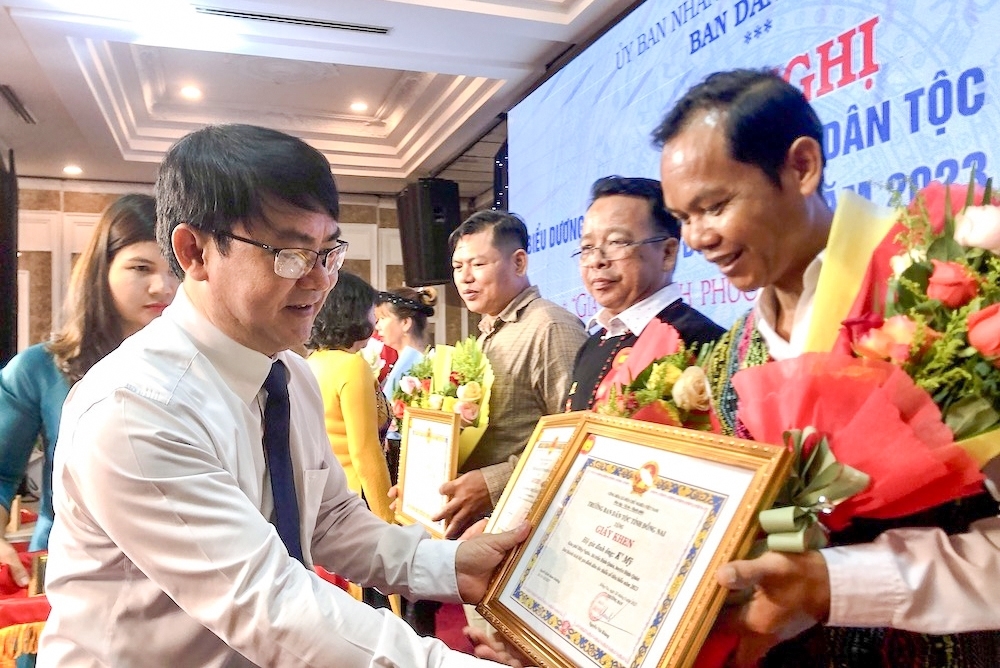
PV: How do you evaluate the significance of organizing the Congress of Ethnic Minorities?
Mr. Nguyen Van Khang: According to Decree No. 05/2011/ND-CP of the Government on ethnic affairs, localities in ethnic minority and mountainous areas will organize the Congress of Delegates of Ethnic Minorities at district and provincial levels every 5 years. This is a broad political activity, affirming the deep concern of the Party and State for ethnic minority areas and recognizing the contributions of ethnic minorities in the cause of building and defending the Fatherland.
For Dong Nai province, the 4th Congress of Ethnic Minorities at district and provincial levels in 2024 is an opportunity to evaluate the results of implementing the Resolution of the 3rd Congress of Ethnic Minorities in 2019; evaluate the achievements and results of ethnic work, ethnic policies, infrastructure development, poverty reduction, and new rural construction in the 2019-2024 period in the province; and at the same time, propose directions and tasks for ethnic work in the 2024-2029 period.
The Congress is also a great festival for ethnic minorities. It is an opportunity for ethnic minorities to express their trust in the Party and the State.
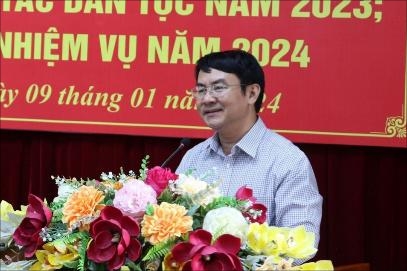
Reporter: Sir, looking back at 5 years of implementing the Resolution Letter of the 3rd Congress of Delegates - 2019, how has the ethnic minority area of the province developed?
Mr. Nguyen Van Khang: Dong Nai has over 50 ethnic groups living together with a population of about 3.2 million people, of which ethnic minorities have 198,784 people, accounting for 6.42% of the province's population.
The ethnic minorities of the province have a long-standing tradition of solidarity and unity, without any distinction between ethnic groups; they live scattered and intermingled; mainly concentrated in remote areas, old resistance bases in the districts of Tan Phu, Dinh Quan, Xuan Loc, Cam My, Vinh Cuu, Long Thanh, Trang Bom and Long Khanh city. Each ethnic group has its own traditional culture in terms of language, customs, beliefs, festivals... creating a unique cultural identity.
Over the past 5 years, ethnic minorities in the province have always received the attention of the Provincial Party Committee, Provincial People's Council, Provincial People's Committee, and Provincial Vietnam Fatherland Front Committee, through projects such as: 3 National Target Programs (Sustainable poverty reduction; New rural construction; especially the National target program on socio -economic development in ethnic minority and mountainous areas for the period 2021 - 2030, phase I: From 2021 - 2025), agricultural and industrial promotion programs... Thanks to that, ethnic minorities have been promptly supported with means and methods to increase production and develop family economy.
Up to now, the economic life of ethnic minorities in the province has been improved, living standards have been gradually raised, the number of poor households has decreased, the number of well-off and rich households has increased; there are no more difficult hamlets and communes. The security, political situation, social order and safety in ethnic minority areas have been maintained.
In addition, the cultural and spiritual life of ethnic minorities continues to be improved. Up to now, 100% of communes and hamlets have radio systems; 100% of ethnic minority households have audio-visual equipment; the cultural and artistic movement among the people has developed through competitions and art performances organized, which have had a positive impact on preserving and promoting the cultural identity of the province's ethnic groups...
The movement “All people unite to build a cultural life” is carried out regularly and brings about practical results. Traditional festivals and New Year of ethnic minorities are organized periodically and frequently. Provincial levels and sectors also pay attention to visiting and congratulating the people, thereby creating a joyful and exciting atmosphere contributing to strengthening the great national unity bloc.
Education and training are also focused on. The proportion of ethnic minority children attending all levels of education is increasing. The number of ethnic minority students studying at secondary schools, colleges, universities, and vocational schools is increasing, contributing to improving the quality of human resources in ethnic minority areas. The proportion of working-age workers with regular jobs is high.
The work of medical examination, treatment, disease prevention, maternal and child health care, and food hygiene and safety in ethnic minority areas continues to be focused on and implemented. Localities are interested in investment and are gradually improving. 170/170 communes, wards, and towns have health stations, of which some commune health stations have been upgraded to polyclinics and regional health centers.
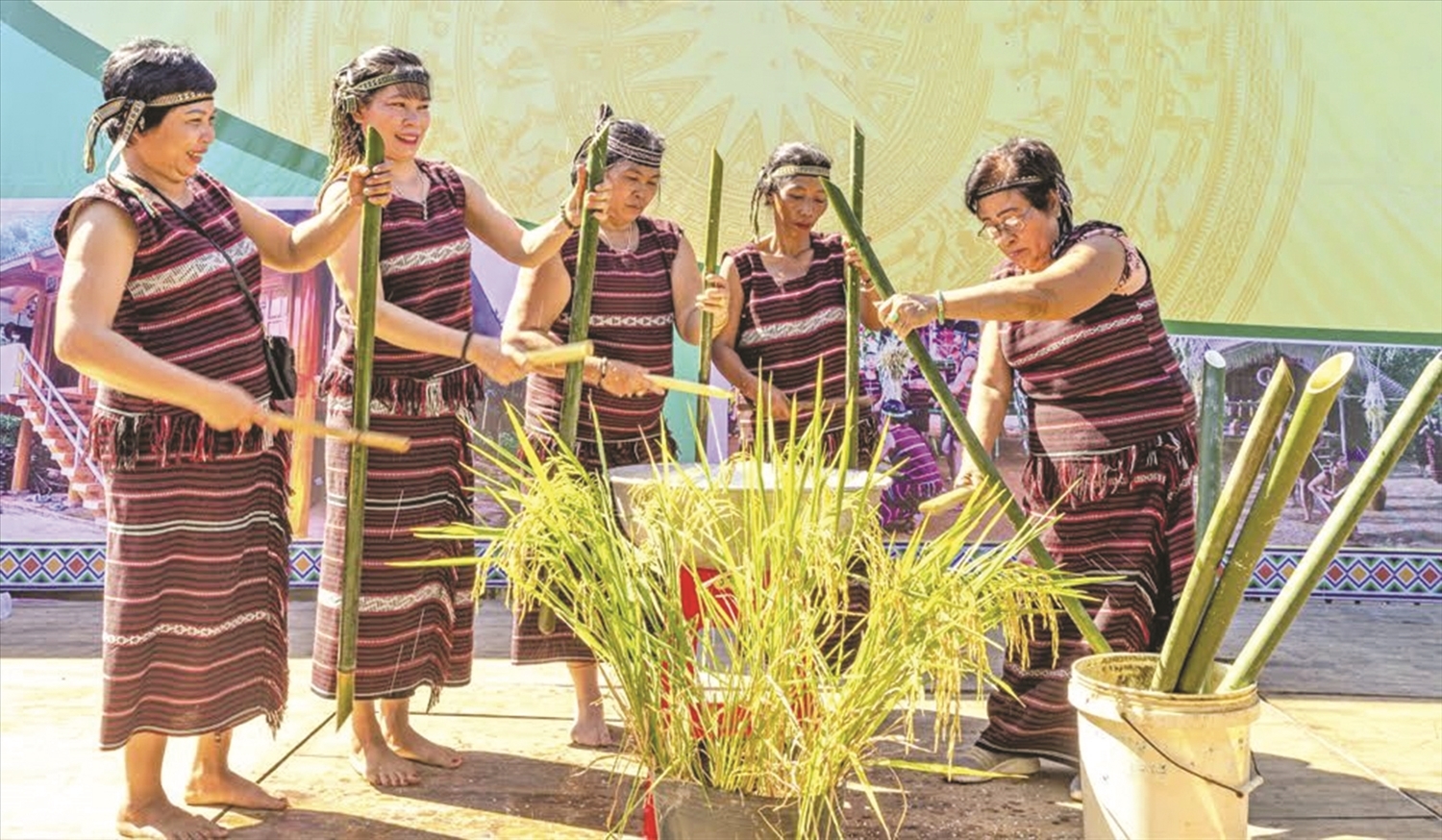
Reporter: The development of the province's ethnic minority areas has had a very important contribution from prestigious people in the ethnic minority areas. In the past 5 years, how has the role of this special force been promoted, sir?
Mr. Nguyen Van Khang: Currently, the team of Prestigious People in the province has 206 people. Over the years, Prestigious People have played their role very well in areas such as: grasping the thoughts, feelings, and aspirations of the people to send to the Party, the State, and authorities at all levels; always being exemplary in leading patriotic emulation movements and campaigns, being an important bridge between the government and the people.
Prestigious people always hold important positions and roles in propagating and mobilizing people to well implement the Party's guidelines and policies, the State's policies and laws; socio-economic development programs and plans, contributing to building a society of order and discipline, ensuring security and order in the province...
PV: What are the highlights of the 4th Congress of Ethnic Minorities in the province in 2024?
Mr. Nguyen Van Khang: The 4th Provincial Congress of Ethnic Minorities in 2024 has received the attention and direction of the Provincial Party Committee. The Standing Committee of the Provincial Party Committee has issued a directive to directly direct and direct the organization of the 4th Provincial Congress of Ethnic Minorities in 2024.
The congress was attended by a diverse group of people, especially the People's Armed Forces Heroes and ethnic minority artists, representing over 50 ethnic minority groups in the province. These are the most prominent representatives of ethnic minorities in Dong Nai province.
Before the opening of the Congress, the People's Committee of Dong Nai province organized the 5th Dong Nai Province Ethnic Minority Culture and Sports Festival in 2024 (from October 25 to 27), attracting over 900 athletes, artisans, and mass actors from 12 participating units. The activities of the Festival aim to educate the young generation about their roots, about the good and beauty in the cultural and spiritual life of their people. It is a driving force to join hands and hearts to build the homeland of Dong Nai to become increasingly rich, advanced, and imbued with national identity. This is also a very meaningful activity to welcome the 4th Congress of Ethnic Minorities in 2024 of the province.
PV: In the period of 2024 - 2029, what orientation does Dong Nai province have to continue effectively implementing ethnic policies in the area, sir?
Mr. Nguyen Van Khang: Dong Nai province identifies the key task as continuing to effectively implement programs, policies, and projects for socio-economic development in ethnic minority areas.
By 2029, the province strives to reduce the annual poverty rate in ethnic minority areas to 0.3% of poor ethnic minority households/total ethnic minority households (according to the province's poverty standard), reduce the gap in living standards and income levels between ethnic groups in the province; the average income of ethnic minorities is half the average of the whole province. Over 85% of ethnic minority households use clean water that meets standards; 100% of ethnic minority households use national grid electricity; strive for 100% of ethnic minority households to have stable housing.
Strive to shift the rural labor structure in ethnic minority areas, annually attracting 5-10% of workers to work in the following sectors and occupations: Industry, handicrafts, tourism, and services.
At the same time, strive to have 90% of ethnic minority farming households engage in commercial agriculture and forestry; 100% of communes and hamlets in ethnic minority and mountainous areas have adequate infrastructure to meet the requirements of socio-economic development and people's lives...
PV: Thank you!








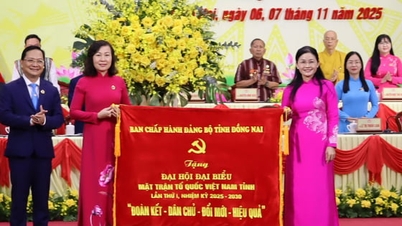





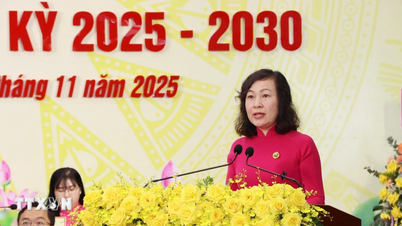

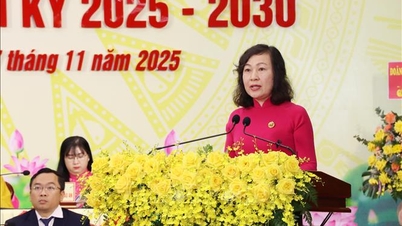





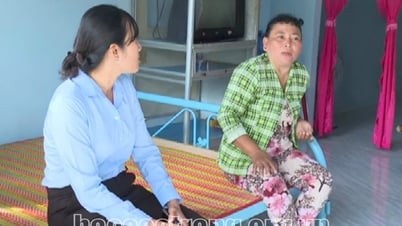

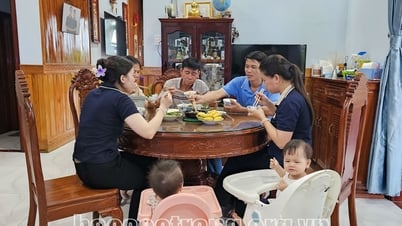
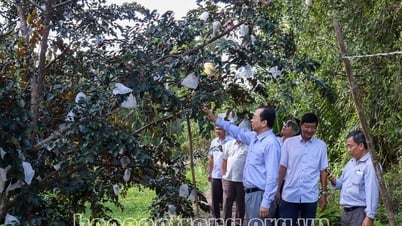
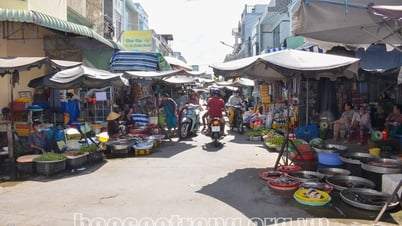
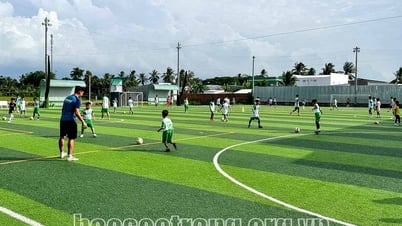





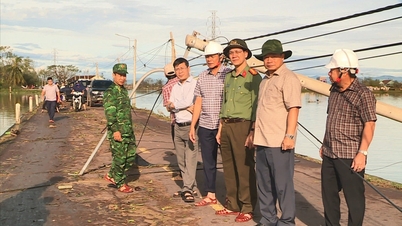



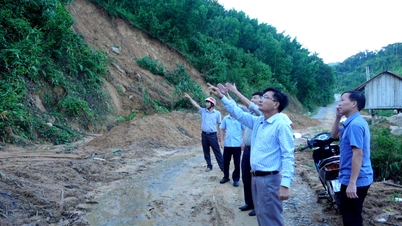

![[Photo] Da Nang: Hundreds of people join hands to clean up a vital tourist route after storm No. 13](https://vphoto.vietnam.vn/thumb/1200x675/vietnam/resource/IMAGE/2025/11/07/1762491638903_image-3-1353-jpg.webp)




































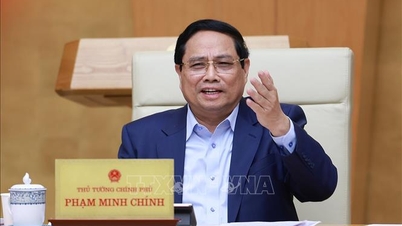
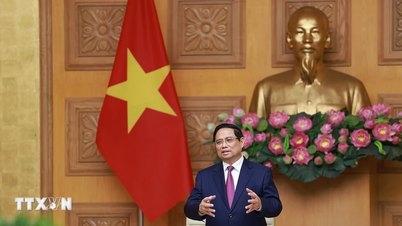

















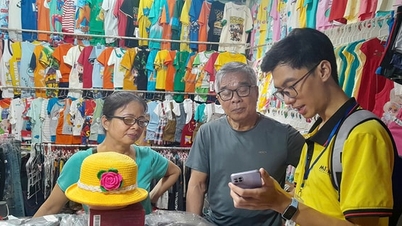



















Comment (0)